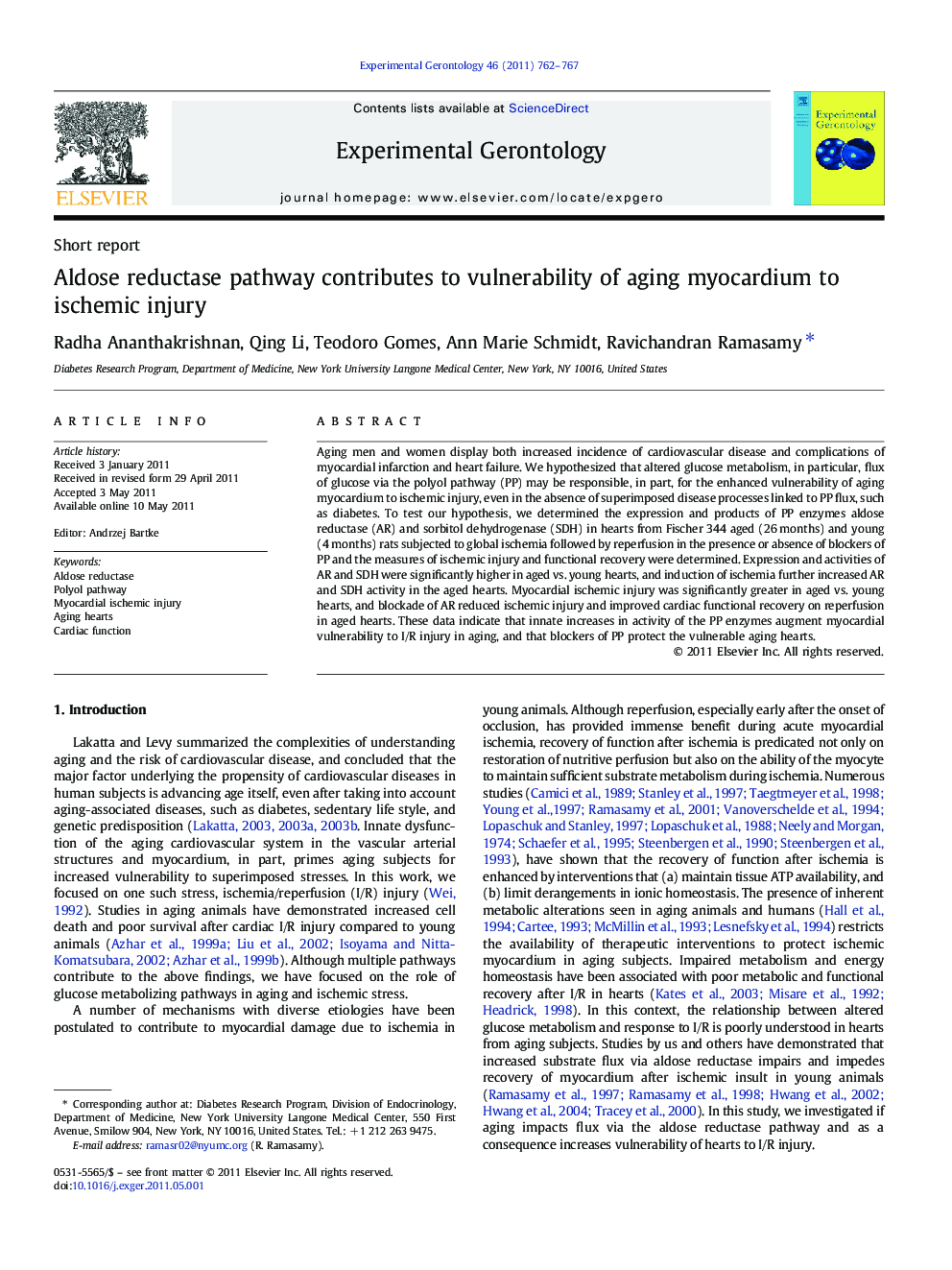| Article ID | Journal | Published Year | Pages | File Type |
|---|---|---|---|---|
| 1906441 | Experimental Gerontology | 2011 | 6 Pages |
Aging men and women display both increased incidence of cardiovascular disease and complications of myocardial infarction and heart failure. We hypothesized that altered glucose metabolism, in particular, flux of glucose via the polyol pathway (PP) may be responsible, in part, for the enhanced vulnerability of aging myocardium to ischemic injury, even in the absence of superimposed disease processes linked to PP flux, such as diabetes. To test our hypothesis, we determined the expression and products of PP enzymes aldose reductase (AR) and sorbitol dehydrogenase (SDH) in hearts from Fischer 344 aged (26 months) and young (4 months) rats subjected to global ischemia followed by reperfusion in the presence or absence of blockers of PP and the measures of ischemic injury and functional recovery were determined. Expression and activities of AR and SDH were significantly higher in aged vs. young hearts, and induction of ischemia further increased AR and SDH activity in the aged hearts. Myocardial ischemic injury was significantly greater in aged vs. young hearts, and blockade of AR reduced ischemic injury and improved cardiac functional recovery on reperfusion in aged hearts. These data indicate that innate increases in activity of the PP enzymes augment myocardial vulnerability to I/R injury in aging, and that blockers of PP protect the vulnerable aging hearts.
Research highlights► Aging increases flux via PP enzymes AR and SDH. ► Increases in PP activity are linked to increased injury and poorer functional recovery after I/R in aging. ► Increases in PP flux linked to reduced levels of ATP during I/R.
